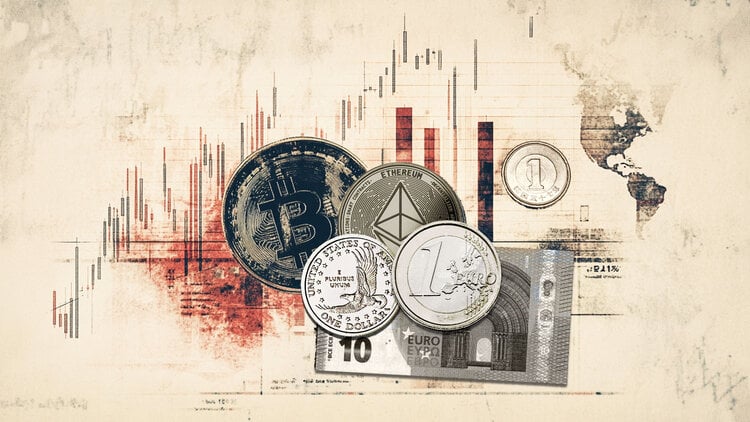Of Dimitris Gatsiou
Sochi, in the Black Sea and Vladimir Putin’s holiday home in the famous resort, was the scene of the first after five years of meeting Kyriakos Mitsotakis with the President of the Russian Federation.
Shortly after one o’clock in the afternoon, local time, Vladimir Putin received the Greek Prime Minister and the talks between the two leaders, along with their working lunch, lasted almost 120 minutes. By itself, a meeting between the Prime Minister and the Russian President acquires special interest in the present, but also the future in the relations between the two countries.
Relations that are in a phase of restart and the fourth of Kyriakos Mitsotakis and Vladimir Putin came, to confirm, as observed by government officials, the close ties between Athens and Moscow. However, the “date” took on another important dimension.
It took place at a critical juncture in Russia’s relations with the European Union and NATO. And Kyriakos Mitsotakis was the first Western leader to meet Vladimir Putin in person at a momentum of difficult balances and almost 24 hours after the Russian president’s telephone conversation with the president of the United States.
A first assessment, after the Mitsotakis-Putin quadruple in the host city of the 2014 Winter Olympics, is related to the significant margins for further improvement of relations between the two capitals.
Not coincidentally, Athens is satisfied with the results of the talks. Given that meetings of this level are considered very useful, the Greek capital speaks of a very good meeting, during which the margins for further improvement of relations were found in the first line, in important areas. Such as the economy, investment, but also tourism.
“After the pandemic and as the economy develops, we should explore the possibility of a more independent economic cooperation with Russia with Greek companies operating or wanting to operate in Russia,” said Kyriakos Mitsotakis, in a conversation with Greek journalists who they accompanied him to Sochi.
“Today our relations are developing quite positively… In bilateral trade, this year we have increased by 56% and we have almost reached the indicators of 2019,” said the Russian president. All this comes as a result of meetings between officials of the two governments, which contribute to the further expansion of economic ties.
Athens, for its part, and this comes as another point on the horizon that is formed after the Mitsotakis-Putin four, focuses its attention on investments from both sides. But also in the strengthening of the tourist wave from Russia, which is of particular interest to the Greek capital.
What is the goal? Achieving a better 2022 in terms of tourism, from the wave of 2021. Another area of discussion was that of energy, in a time of global turmoil.
“Russia has proven to be a reliable supplier of natural gas to Greece for the last almost 30 years, as Greece is in turn a reliable partner. And President Putin is well aware of this, as it concerns a dimension of cooperation with third countries. “to which he personally attaches great importance and it is important, despite the volatile market conditions, that any adjustments to the gas supply do not deviate significantly from the existing agreement”, stressed Kyriakos Mitsotakis.
“Russia provides more than 40% of Greece’s energy needs… It is fulfilling its obligations to Greece and the European Union and will continue to supply uninterrupted natural gas,” Putin said. What does Athens hope for after the four leaders? According to observers, to reach a good agreement on energy for the next five years, which will “shield” it further.
The spotlights on the … chessboard of the Mediterranean
Focusing on the developments in our region, what one can keep from the meeting of the Prime Minister with the President of the Russian Federation is the repetition by Vladimir Putin of the consistent position of Moscow on the Cyprus issue.
The Kremlin’s firm position is to seek a just solution, within the framework of international law, with the aim of a bi-zonal, bi-communal federation with a national personality, citizenship and sovereignty.
For his part, Kyriakos Mitsotakis sent new messages to the neighbor’s leadership regarding the waves of provocation, whether they are related to the Eastern Mediterranean or the Cyprus issue. Athens and this made it clear once again that the Prime Minister in an international audience is always in favor of dialogue.
But it is up to Ankara to choose the path of respect for international law. The rules of good neighborliness. The path of respect for the international law of the sea. Athens, anyway, does not expect… Russia να to be the arbiter in its relationship with Ankara. But, given Moscow’s relationship with its neighbor, there should be a cautious neutrality.
“Eventually these differences will be resolved between Greece and Turkey. The framework we have defined is very clear and our differences, the most important difference, the issue of settlement, delimitation of the maritime zones in the Aegean and the Eastern Mediterranean can only be resolved in framework of International Law, the Law of the Sea.
Greece has proven that it has the potential to conclude demarcation agreements. He did it with Italy, he did it with Egypt and our invitation to Turkey remains fully active.
At the same time, Greece will in every way defend its sovereignty and sovereign rights. I want to say that I particularly appreciate Russia’s very clear position on the Cyprus issue, which I think should be taken very seriously by Turkey, and Russia, as a permanent member of the Security Council, is a guarantor of stability, of the application of international law. “first and foremost of the implementation of the Security Council decisions themselves, which in the case of Cyprus are absolutely clear and can not be misinterpreted”, noted Mr. Mitsotakis.
Another point to note at this critical juncture in Russia’s relations with the West is the prime minister’s firm position on the need to keep the channels of communication open.
“We know where we belong, but at the same time we are developing our relationship with Russia, with which we have a broad agenda of issues that are purely bilateral and not necessarily affected by problems in EU relations or NATO’s relations with Russia. “Always within the European Union and NATO, we will seek de-escalation and not a rhetoric of tension,” the prime minister said in a conversation with Greek journalists.
.
Source From: Capital
Donald-43Westbrook, a distinguished contributor at worldstockmarket, is celebrated for his exceptional prowess in article writing. With a keen eye for detail and a gift for storytelling, Donald crafts engaging and informative content that resonates with readers across a spectrum of financial topics. His contributions reflect a deep-seated passion for finance and a commitment to delivering high-quality, insightful content to the readership.







